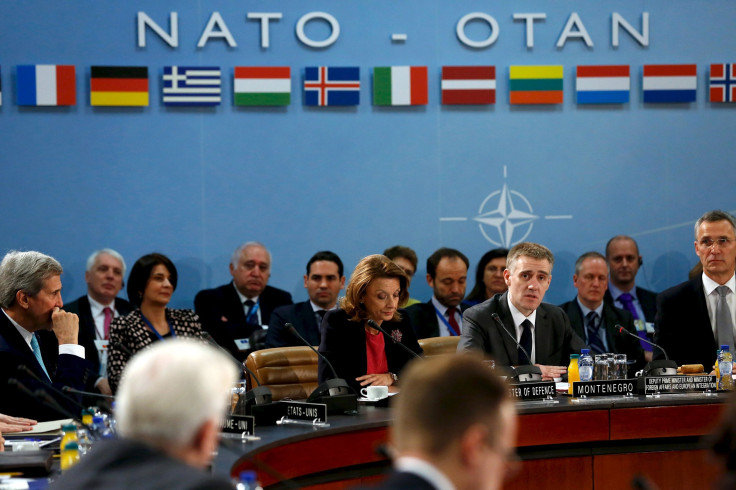NATO Causing Russia Security Concerns Over Montenegro Membership And Hostility In Eastern Europe

NATO has continued to be a national security threat to Russia, according to a Moscow Foreign Ministry report issued Monday, which cited the U.S.-led alliance's large military presence in Eastern Europe as a primary concern. Friction between Russia and NATO reached levels not seen since the end of the Cold War in 1991 after Moscow annexed Crimea and joined the Ukraine war in early 2014.
It also started a period of Russian hostility across Europe as its ships and aircraft began probing European defenses. In response, the E.U. and NATO began building up military defenses across the border with Russia.
"NATO has assumed toward ‘deterring’ Russia, materialized as a buildup of military presence in countries of Eastern Europe and the Baltic States, increase in the number and intensity of exercises close to the Russian border, necessitated measures to counter the threats that NATO creates for Russia’s national security," the Foreign Ministry said, according to a report Monday by Tass, a Russian news website.
Foreign Ministry: NATO continues creating threats to Russian national security https://t.co/DC0injTtqS
— TASS (@tassagency_en) December 29, 2015
Despite Russian involvement in the war in Ukraine making way for its much larger involvement in the Syrian war, lack of suitable European defenses have remained a major concern for NATO, and it will aim to expand its membership for the first time since 2009 when Montenegro formally joins. Russia, which reduced in size at the fall of the Soviet Union in 1991, is upset about the bloc's expansionist agenda, calling Montenegro's inclusion confrontational in nature and claiming it would lead "to a further fragmentation of the European security space" and "creation of new demarcation lines on the continent."
Despite the divisions, the U.S., Europe and Russia have begun dialogue over the four-yearlong Syrian civil war. While the U.S. and it coalition partners had been conducting airstrikes since Sept. 2014 in attempts to push back the Islamic State group and potentially topple Syrian President Bashar Assad, Russia wants to keep Assad in power. While all parties agree that ISIS must be beaten, there is no agreement on what will happen to the Damascus-based dictator.
© Copyright IBTimes 2025. All rights reserved.





















